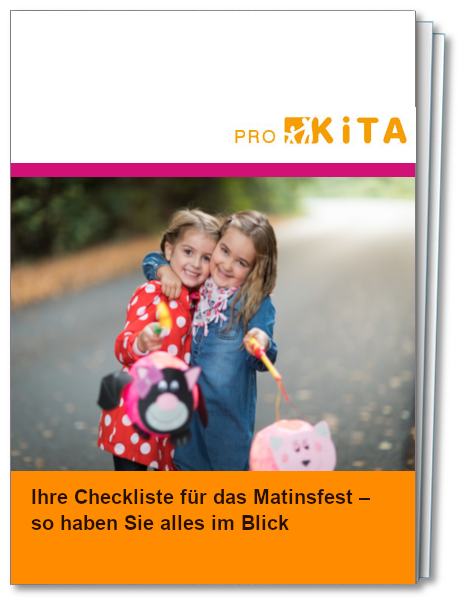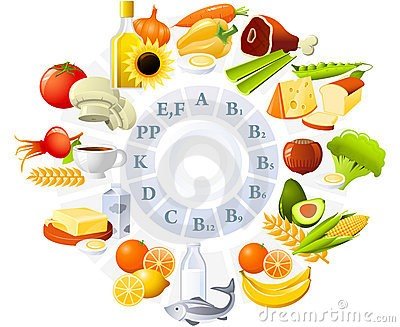Nicole Wendler holds a doctorate in biology from the field of oncology and immunology. As a medical editor, author and editor, she works for various publishers, for whom she presents complex and extensive medical issues in a simple, concise and logical manner.
With the right one Diet during pregnancy women can contribute to the healthy development of their child. But you don’t have to eat for two – pregnancy only slightly increases calorie requirements. However, it is important to bring healthy and nutrient-rich food to the table. What You at of nutrition during pregnancy, read here!
How many calories does a pregnant woman need??
During pregnancy, the daily energy requirement increases – but only from the fourth month and not at all very much: by the end of the pregnancy just 10 percent. That means: a pregnant woman needs about 2300 calories a day. Compared to a non-pregnant woman, this is 300 kilocalories per day, which corresponds to a cheese bread or a yoghurt with fruit. On average, however, every German consumes around 2,800 calories per day, which is significantly more than a pregnant woman needs.

Increased need for vitamins & Co.
A sufficient supply of proteins, minerals, vitamins and trace elements is more important than the slightly increased energy requirement. You no longer have to eat during pregnancy, but only better, more balanced and healthier. You feed your child and provide them with nutrients through your circulation. Therefore, pay attention to high quality in the selection and preparation of the food!
Pregnancy: plan your diet well!
Not sure if you are already eating sensibly? Then the following small nutrition plan will help you to live through pregnancy and childbirth well cared for:
- Eat plenty Fruit and vegetables (five servings * per day) as well as whole grains and potatoes (preferably with every meal). Drink plenty of low-calorie drinks (two glasses per meal and spread throughout the day).
- Eat in moderation low-fat meat (three to four servings per week), high-fat sea fish (two servings per week) and low-fat milk products (three servings or glasses per day).
- Eat little Finished products, high-fat food, "Fast food" (only occasionally) and sweets (about a handful a day).
* One serving is the amount that fits in your hand.
You should also take care to eat regularly and prepare your food fresh whenever possible. Prefer vegetable oils to animal fats. In the case of morning sickness or increasing abdominal circumference, smaller meals distributed throughout the day (three main meals and two snacks) are useful to cover the nutritional requirements.
Healthy nutrition – pregnancy without vitamin pills & Co.?
You can provide yourself and your child with a balanced diet during pregnancy. In the case of folic acid and iodine, the food supply does not meet the demand. Caution should also be exercised when it comes to iron supply during pregnancy: in some cases, eating iron-rich foods (broccoli, kale, lean meat, etc.) alone is not enough to meet the need.
Overall, the supply of the following nutrients during pregnancy is particularly critical:
folic acid
Pregnant women need about 50 percent more folic acid than non-pregnant women. If there is an undersupply, the risk of serious malformations in the child increases (neural tube defect, "open back"). It is therefore important to add folic acid right at the beginning of pregnancy – even if you want to get pregnant beforehand. Pregnant women should take one tablet with at least 0.4 milligrams of folic acid daily. A diet rich in folate also helps during pregnancy. Green vegetables (Brussels sprouts, broccoli, peas), whole grains, legumes, barley, barley, soy, egg yolk, rice and fruit contain plenty of folic acid.
A lack of iodine also increases the likelihood of a malformation in the child. 100 to 150 micrograms (µg) of iodide per day are sufficient for healthy physical and mental development of the child. Iodized table salt makes sense, but no more than four grams should be consumed per day. Sea fish, seafood and dairy products are good natural sources of iodine. However, sea fish and seafood should only be consumed in moderation – they are often contaminated with heavy metals such as mercury.
If you have thyroid disease, you should definitely discuss with your doctor whether and how much additional iodine you can take.
iron
During pregnancy, the amount of blood and thus the iron requirement of the mother-to-be increases. In contrast to iodine and folic acid, a deficiency can often be avoided with an iron-rich diet during pregnancy. The most important iron supplier is meat. But legumes and whole grains also contain a lot of iron. Good meatless iron sources are beetroot, strawberries, apricots and millet. Vitamin C supports iron absorption. Therefore, always combine iron-containing dishes with fruits and vegetables with a high vitamin C content, such as cabbage vegetables, peppers or oranges (also orange juice).
As part of the preventive medical check-up, your gynecologist regularly checks the iron concentration in your blood. If a deficiency occurs during pregnancy despite an iron-rich diet, the doctor will prescribe an iron supplement for you.
Special nutrition during pregnancy
Don’t you eat meat? Do you avoid fish? Or do you eat vegan at all? If you want to continue a special diet during pregnancy, you should always inform your gynecologist about it.
vegetarians
Vegetarians who eat enough protein-rich food and dairy products (ovo-lacto vegetarians) are usually well supplied with all the important nutrients. However, giving up meat can lead to an iron deficiency. Iron is an important mineral for the healthy development of your baby. As a vegetarian, you must therefore take special care to get enough iron in meat-free foods. Therefore, always combine whole grain products with vitamin C-rich fruit or vegetables. If your gynecologist detects an iron deficiency, iron supplements may be necessary.
If you don’t eat fish, important omega-3 fatty acids may be missing. The daily intake of 200 mg of DHA – a long-chain omega-3 fatty acid – would then be recommended.
vegans
There is still disagreement among experts about how dangerous a diet without animal products is for the unborn child:
The German Society for Nutrition (DGE) considers a vegan diet to be unsuitable during pregnancy because there are considerable health risks for the child. It may not get enough calcium, iron, vitamin B12 and vitamin D3.
However, according to the American Society of Nutritionists (ADA, American Dietetic Association) and the Association of Canadian Nutritionists (Dietitians of Canada, DC), there is nothing to be said against a well-planned vegan (or vegetarian) diet during pregnancy. However, the two organizations emphasize that the administration of dietary supplements may be necessary to meet the recommended nutritional requirements in individual cases.
In any case, malnutrition during pregnancy must be avoided. Because this carries serious health risks, especially for the development of the child’s nervous system. Therefore, be sure to inform your gynecologist if you are planning a vegan diet during pregnancy.
What are pregnant women not allowed to eat or drink??
Pregnancy also means giving up one or the other food or luxury food in order to the child not to harm:
Alcohol in pregnancy
Whether beer or wine – every sip of alcohol harms the child. There is no risk-free limit. Alcohol quickly gets into the child’s circulation via the umbilical cord. There it takes some time until the alcohol is broken down again, since the organs of the fetus are not yet fully developed. The result can be premature or miscarriage, mental and physical disabilities. The most severe form of alcohol-related damage in children is called fetal alcohol syndrome (FAS). It is characterized by various malformations and developmental disorders.
You should therefore avoid alcohol during pregnancy! Desserts, chocolates, fruit juices, baked goods, malt beer and even non-alcoholic beer can also contain small amounts of alcohol. Here, however, the salary is so low that there is no risk of harm to your child if consumed occasionally.
In the first few weeks, you usually don’t know anything about the existing pregnancy. If you have consumed alcohol during this time, you do not need to worry. The so-called all-or-nothing principle applies in the first month. The embryonic cells are omnipotent in this early phase, which means that they can still develop in each cell and compensate for minor disturbances. If the defect is severe, miscarriage occurs. Alcohol consumption becomes critical from the fifth week; then organ development begins in the unborn.
Raw milk, sushi and salami
Pregnancy is sometimes associated with complications such as premature birth or birth defects. The cause can be food infections (toxoplasmas, listeria, salmonella). These germs are mainly found on raw animal foods, which should therefore not be consumed during pregnancy. Specifically, it is primarily about:
- not (sufficiently) fried meat
- raw fish marinated in brine or cold-smoked fish (pickled herring, trout fillets, smoked salmon, sushi)
- raw eggs
- raw milk
Raw ham, tea sausage, mett and salami are also not recommended during pregnancy. Also, do not eat raw milk cheese. The same goes for dishes made with raw eggs (like mayonnaise or tiramisu). As a precaution, you should always wash fruits and vegetables carefully before eating them.
Coke in pregnancy
Like coffee, cola contains the pick-me-up caffeine. This inhibits iron absorption and increases blood pressure. The caffeine also reaches the unborn child via the placenta and is also effective there. Therefore, only drink small amounts of caffeinated drinks such as coffee, green tea, black tea or cola during pregnancy. Pregnant women are advised against caffeine-containing energy drinks.
Its high sugar content also speaks against excessive consumption of cola.
Licorice in pregnancy
The glycyrrhizin contained in licorice (licorice root) is suspected to have a negative impact on children’s development. It increases blood pressure and may make the placenta more permeable to the stress hormone cortisol. The levels of cortisol in children whose mothers had regularly eaten liquorice during pregnancy were significantly higher than in children whose mothers had not consumed licorice as pregnant women. Even if the exact relationships are unclear, you should limit the consumption of licorice during pregnancy. The Federal Institute for Risk Assessment (BfR) explicitly warns pregnant women against excessive and regular consumption of licorice.
Pregnancy: be careful with spices?
Some herbs and spices can cause labor pains in large quantities, such as cloves, parsley and cinnamon. With normal amounts for seasoning food there is no danger.
There is another reason why cinnamon should not be consumed in large quantities. Cassia cinnamon in particular contains a lot of coumarin – a flavoring that can cause liver damage in small amounts in sensitive people. There is less coumarin in the (more expensive) Ceylon cinnamon.
Pregnancy: Ban on liver and liver sausage?
Pregnancy is often accompanied by a craving for certain foods. Fresh liver shouldn’t be part of it, since it contains a lot of vitamin A. This can be particularly harmful in the first trimester of pregnancy for the child his.
Liver sausage, on the other hand, contains significantly less vitamin A and can be consumed occasionally. It is also a cooked meat product and not a raw sausage, which must be avoided during pregnancy (e.g. tea sausage or salami).
Sweeten pregnancy with honey?
Honey is dangerous for children under the age of one, as it may contain spores of the bacterium Clostridium botulinum can spread in the child’s intestine and lead to infant botulism. But there is no need to worry during pregnancy. Your intestinal flora protects both you and your child.
In connection with honey, the occasionally high levels of pyrrolizidine alkaloids (PA) are also being discussed. But don’t worry about it: honey from Central or South America is particularly contaminated, less so is European honey.
Pregnancy: pollutants in mushrooms, offal and tuna
Pregnancy is a phase in which more contaminated food should be avoided – for the benefit of the child, but of course also for the mother. You can keep the intake of pollutants low by:
- Always wash or peel fruit and vegetables thoroughly
- Only eat wild mushrooms in small quantities (cadmium, mercury, radionucleotides!)
- Only rarely consume offal – especially from wild animals (heavy metals!)
- Consume no more than 20 grams of flaxseed daily (cadmium!)
- Only rarely eat tuna and other predatory fish during pregnancy (mercury!)
Fish generally contains important nutrients, and its consumption is therefore highly recommended for pregnant women. However, some fish accumulate mercury through the food chain. Across Europe, maximum values of one milligram of mercury per kilogram of fish are permitted. Predatory fish at the end of the food chain are particularly contaminated, such as tuna, eel, pike, redfish, halibut or swordfish. Mercury can cross the blood-brain barrier and the placenta and cause serious damage to the nervous system in the unborn child. Therefore, whether fresh or canned, limit the consumption of tuna.
Pregnancy: poppy is harmful?
The BfR advises against excessive consumption of food containing poppy seeds. The reason for this is the sometimes high content of alkaloids such as morphine and codeine, which are used medically to relieve severe pain. With foods rich in poppy seeds, the amount of morphine can sometimes be in the therapeutic range. However, there is no danger, for example, with a poppy seed roll.
Diet during pregnancy: prevent allergies in the child?
By changing your diet during pregnancy and avoiding certain foods, you cannot prevent possible allergies in the child. Regular consumption of high-fat sea fish is said to have an allergy-preventing effect. You can also reduce your child’s allergy risk by taking the Diet during pregnancy make it as balanced and varied as possible.
RELATED ITEMS
-

Healthy food in daycare and crèche
Healthy nutrition in the crèche is a hot topic. Especially if the parents of your creche have breakfast and lunch for theirs…
-

Nutrition for children and adolescents in sports, olympia center vorarlberg
The nutritional information in all media is increasing steadily – unfortunately, this confuses more than the benefit! Nutrition is actually quite simple, though…
-

The combination of exercise and nutrition … .. Nutrition and exercise are two of the most important building blocks for a healthy life. A child who cares a lot…
-

Pregnancy – wanting to have a child with hashimoto thyroiditis
The autoimmune disease Hashimoto’s thyroiditis affects far more women than men. So it is inevitable that those affected consider themselves…
